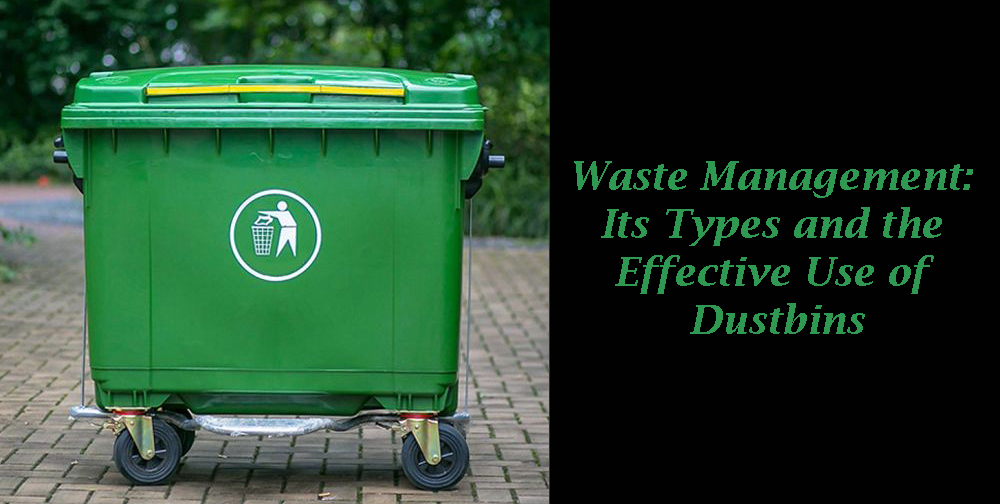Environmental Hazards
Improper waste disposal can lead to health hazards for humans, environmental degradation, the greenhouse effect, and pollution. Soil, water and air pollution are the immediate results of improper waste disposal. It takes place when the waste comes in contact with hazardous materials. It can cause permanent damage to marine and wildlife.
A lot of waste that is generated comes from our houses and the industries. The solid waste types and sources are:
- Household hazardous waste
- Construction and demolition debris
- Industrial/ commercial waste
- Agricultural waste
- Hazardous waste lamps
- Regulated medical waste
- Electronic wastes
The solid wastes can be further divided into three categories depending on the composition:
- Organic Waste- Kitchen Waste like vegetables, flowers, leaves, fruits, etc.
- Toxic Waste- Medicines, paint, fertilizers, chemicals, batteries, etc.
- Recyclable Wastes- Paper, Glass, Metals, some types of plastics.
Solid wastes require special handling procedure and disposal methods because of their physical characteristic and chemical composition. Non-biodegradable wastes and toxic wastes that include radioactive remnants can cause irreparable damage to human health and the environment. To avoid this, they need to be strategically disposed of.
Types of Solid Waste Management
Waste Management is the collection, transportation, treatment, and proper disposal of garbage, sewage and other waste products. It is the total procedure where waste is managed from its inception to disposal. It reduces the effect of toxic wastes on the environment and human health. It focuses on the issues of avoidance and reduction of waste.
The various ways of waste management are:
- Landfills: This is an age-old and popular method of throwing daily waste and garbage in landfills. It buries the scraps so that they can mix with the soil. It can lead to soil pollution and eventually harm the environment.
- Recycling of Wastes: Recycling wastes are an essential part of waste management that helps the environment in many ways. It is the conversion of wastes or discarded products into a new product that can have various uses. It saves energy and reduces further waste production.
- Composting: It is the best method of waste disposal where organic wastes are dumped in the ground. They turn into manures and can be used for plants since they are high in nutrients.
- Incineration: It includes the combustion of waste materials. The wastes are heated to very high temperatures, and then it gets converted into heat, gas and ash. This method is not very eco-friendly since it can lead to air pollution.
- Animal Fodder: Organic wastes like vegetable skins can be used as animal fodder.
Importance of Waste Management
There are multiple benefits of waste management. The following are some of them:
- Healthier Environment: Waste reduction naturally leads to fewer diseases due to a hygienic society with proper sanitation.
- Pollution Control: It reduces all sorts of pollution, thereby leading to a cleaner, greener and fresher environment.
- Energy Conservation: The act of recycling helps conserve energy. One of the best examples is saving papers that eventually leads to saving trees and reducing carbon footprints.
- Employment Creation: Waste Management industry requires a lot of manpower. It is a budding industry because of the large amounts of wastes produced every day.
Use of Dustbins
Waste bins, or what people call dustbins, are used for throwing trash and garbage. Modern-day bins are different and scientifically made. The municipality heads provide the plastic dustbins for proper segregation of wastes for easier waste management. They are made for collecting dry waste and wet wastes. They are eco-friendly and can bring a positive change in the environment if people properly dispose of wastes. There are three types of bins. The first one is the Green Dustbin used for collecting kitchen wastes and other biodegradable wastes. The second one is the Blue Dustbin, which collects non-biodegradable wastes like plastic, metals and glass pieces. The third one is the Black Dustbin for collecting e-wastes like batteries, used phones, scanners, household appliances, etc. The bins can also be purchased online from plastic dustbin manufacturer. Various sizes are available depending on the purpose. They can be used for collecting wastes from both houses and offices.










